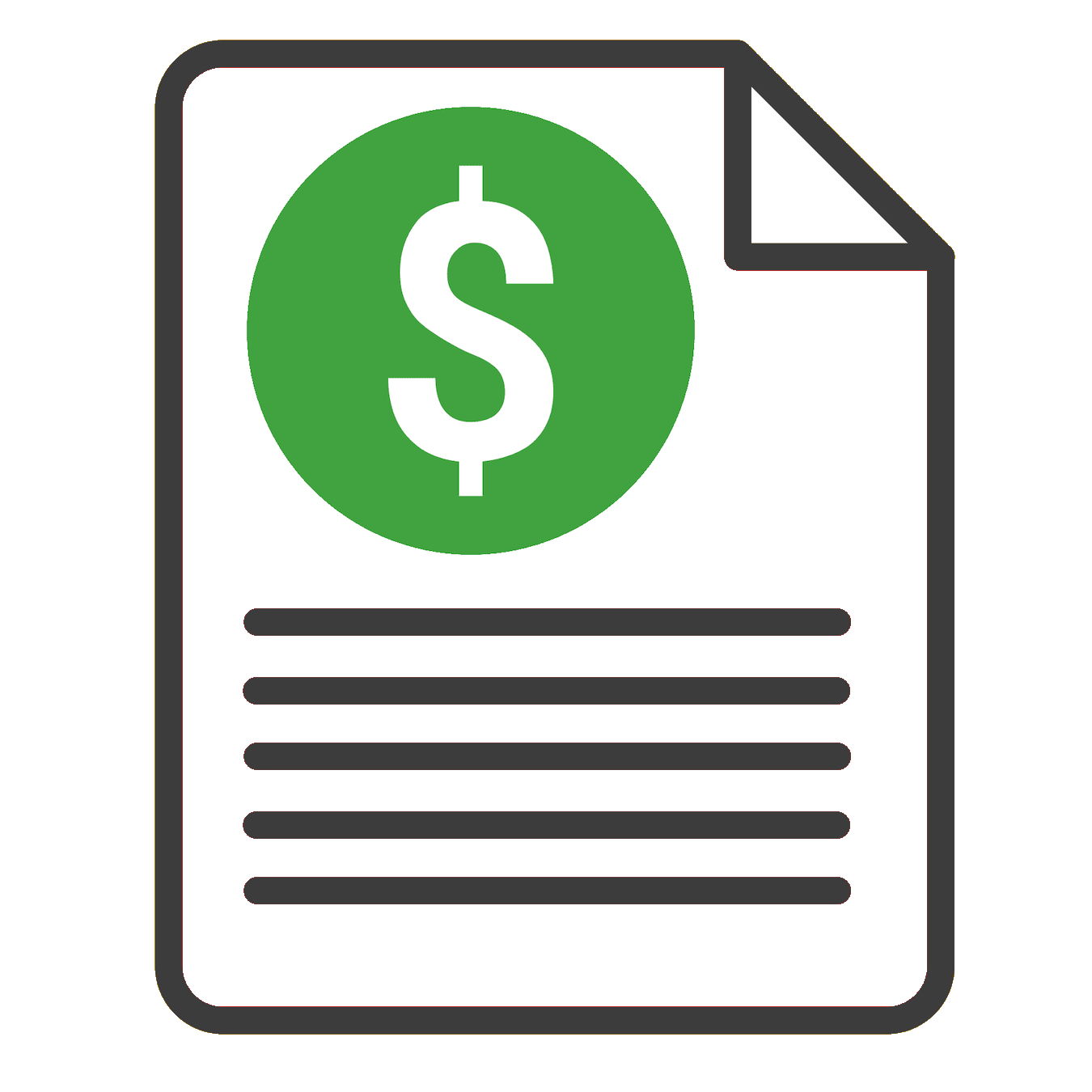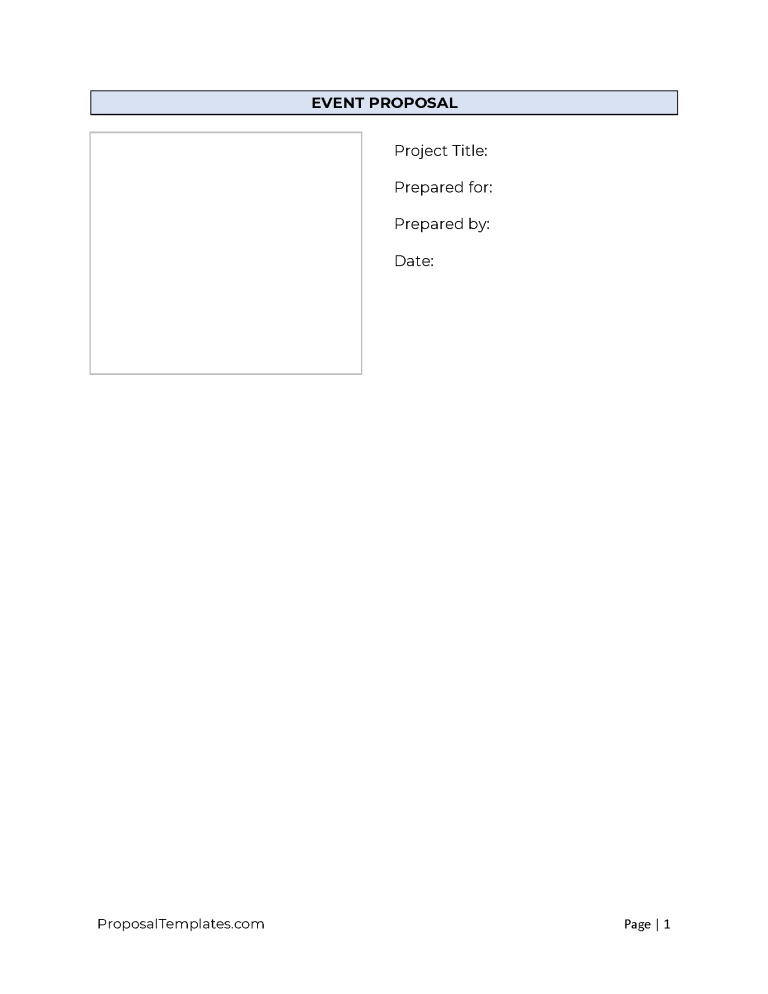An event proposal approaches event managers with a provider’s goods and services for the purpose of obtaining an event project. If agreed upon by the client, the bid is commonly executed together with a payment made to secure the date.
By Type (10)
1. Title Page For Event Proposal
Use the first page to title the proposal in addition to presenting the event name. Also, if the recipient is a single or targeted client, include their contact information.
Logo, Proposal Information, Branding, Date
Proposing Company Information
Recipient Name, Contact Information
Recipient Information, Table Of Contents
Executive Summary, Confidentiality Statement
2. Event Proposal Executive Summary
Consolidate the content of the proposal into a particularly comprehensive summary. Go over the proposal’s key topics (i.e., unique selling points and objectives) to entice the client to continue.
Event Overview, Goals, Client Requirements
Proposing Company’s Solutions, Event Description
Cost Options, Estimated Totals, Service/Product Packages
Event Project Team, Qualifications, Past Successes
Call To Action (CTA), Conclusion, Contact Information
3. Event Description
Define the event’s characteristics, such as its theme, history, objectives, and target audience. In a word, put the event in perspective for the client so they fully realize its scope.
Event Title, Type, Purpose
Event Objectives, Concepts, Theme
Scheduling, Location, Duration, Costs
Target Audience, Expected Attendance
Legal Considerations, Compliance Requirements
4. Objectives
Go into specifics explaining the goals of the event and the client regardless of the project objectives. If possible, relate these objectives to the project; however, keep the focus on the event in this section.
Measurable Objectives, Prioritization
Objective Alignment, Marketing, Networking
Training, Education, Fundraising, Community Engagement
Metrics, Dependencies, Flexibility, Constraints
Client Feedback, Input, Communication, Approval
5. Target Audience
Continue the proposal by identifying the event’s attendee demographics while comparing the client’s target audience with the event.
Demographic Information, Geographic Analysis
Psychographic Information, Motiviations
Pain Points, Goals, Previous Events
Audience Size, Communication, Key Influencers
Client Knowledge Base, Event Goal Alignment
6. Event Concept
Discuss the unique selling propositions of the event while assuring the client of its ability to capture the audience. However, more social events (i.e., weddings) should focus on the client’s requested themes.
Event Concept, Decor, Atmosphere, Theme
Visual Identity, Activities, Costs
Entertainment, Dress Requirements
Catering, Menus, Marketing, Branding
Audience Interactions, Client Approval
7. Venue Logistics
Describe the event venue in detail by presenting its layout, location, capacity, and logistic considerations. Additionally, specify the event venue attendee experience, such as amenities and access levels.
Venue Selection, Considerations, Requirements
Venue Layout/Floorplan, Facility Details, Budgeting
Capacity, Amenities, Catering, Logistics, Timeline
Security, Parking, Transportation, Safety, Accessibility
Vendor Coordination, Attendee Requirements
8. Agenda
Detail the project scheduling for the event planner as well as the event’s timeline. Also, give specific times for the workshops, speakers, or entertainment planned if relevant.
Event Schedule, Greetings/Opening Remarks
Speakers, Sessions, Workshops, Networking
Interactive Elements, Entertainment, Breaks, Meals
Audience Engagement, Products, Logistics
Technology, Sponsorship Acknowledgments, Conclusion
9. Financial Information
Include a report on the event project’s costs as well as the estimate’s expiration date. Overall, the event planner should find it easy to review all the costs contributing to the estimated total.
Event Budget, Income Sources, Sponsorship Funding
Grant Funding, Revenue Projections, Detailed Expenses
Cost Estimates, Pricing Structure, Payment Terms, Taxes
Policies, Sponsorship Revenue, Grant Funding, Compliance
Budget Contingency, Financial Risks, Mitigation, Variance
10. PR And Marketing
In essence, most companies must prove they can attract attendees and sponsor attention. Thus, explain the marketing strategy the proposing company will engage to achieve this goal.
Marketing Strategy, Target Audience, Timeline
Visual Identity, Branding, Event Website, Marketing Budget
Social Media, Email Marketing, Sponsorship Promotion
Search Engine Optimization, Content Marketing
Public Relations, Paid Advertising, Event Partnerships
11. Sponsors And Partners
If applicable, spell out the sponsorship opportunities for the event in addition to how they can be utilized. Additionally, explore partnerships that may be fostered or improved through this event.
Sponsorship Levels, Packages, Benefits
Exhibition, Booth Opportunities, Client’s Role
Promotional Opportunities, Customizable Sponsorships
Partnerships, Exclusivity, Sponsorship Timeline
Evaluation, Pricing, Proposal Submission Instructions
12. Event Technology
Describe the software technology and equipment needed for the event in detail. For example, (depending on the proposal’s objective) the POS systems, ticketing hardware, transport, or cleaning equipment are all required topics.
Event Website, Mobile App, Virtual Event, Onboarding
Event Management Software, Technical Support
Audience Engagement, Networking, Accessibility
Matchmaking Tools, Event Marketing Technology
Live Streaming, Video Production, Security, Privacy
13. Event Team Roster
Identify the event project team by presenting their names together with their roles and qualifications. Specifically, list each team member’s responsibilities along with their contact information.
Project Team Members, Event Team Members
Role Descriptions, Logistics, Operations, IT, On-Site, PR
Attendee Services, Qualifications, Team Coordination
Vendor Coordination, Partner Coordination, Staffing
Deadlines, Schedules, Contingency Plans, Logistics
14. Risk Management
Explore the potential risks to the event project as well as the contingency plans set in place to counter them. In fact, give a very detailed report on how any anticipated risk will be mitigated to the satisfaction of the event planner.
Risk Identification, Weather Issues, Technical Failures
Logistics, Compliance, Cybersecurity, Health And Safety
Risk Assessment, Probabilities, Contingency Plans
Emergency Response Plans, Insurance Coverage
Budget Allocations, Communication Plan, Monitoring
15. Legal Considerations
Review every legal and regulatory concern, such as insurance and license requirements. A comprehensive discussion on every contractual obligation expected of the client and proposer is also essential.
Event Permits, Licenses, Contracts, Insurance Coverage
Intellectual Property Rights, Data Protection, Privacy,
Accessibility, Inclusivity, Health And Safety Regulations
Environmental, Sustainability, Alcohol/Food Regulations
Taxes, Financial Compliances, Event Accessibility
16. Metrics
Give the event planner a particularly detailed explanation of the metrics for measuring the event project’s success. In other words, deliver an in-depth report on the key performance indicators (KPIs) applied to the event project.
Event Objectives, Key Performance Indicators (KPIs)
Data Collection Methods, Long-Term Impacts
Data Analysis, Reporting, Lessons Learned
Post-Event Surveys, Feedback, Sponsorship
Benchmarking, Budget vs Actual Analysis
17. Appendices
Compile this proposal’s supplementary paperwork and materials into one section rather than interrupting its flow with oversized paperwork. Also, remember to cite this section in the proposal above as needed.
Event Schedules, Venue Layouts, Floor Plans
Sample Marketing Collateral, Event Budget
Sample Contracts, Testimonials, References
Event Photography, Sample Event Reports
Promotion, Surveys, Technological Specifications
18. Contact Information
Provide the contact information needed to contact the event project management team with attention to availability. It is equally important to prompt the client to initiate additional contact.
Event Organizer’s Contact Information
Event Team Contacts, Response Time Expectation
Client/Organization Contact, Availability, Signature
Emergency Contact Information, Additional Contacts
Preferred Communication Method, Social Media Link
19. Approval Signatures
In order to complete this proposal, a final statement summary should be displayed with the signature of the proposing company. Furthermore, a signature block should be available for the client and other interested parties (i.e., stakeholders).
Title, Approval Statement, Authorized Signatory
Signature Date, Event Organizer’s Signature
Event Organizers Signature Dates, Special Instructions
Witness, Notary, Additional Comments
Submission Instructions, Submission Deadline

